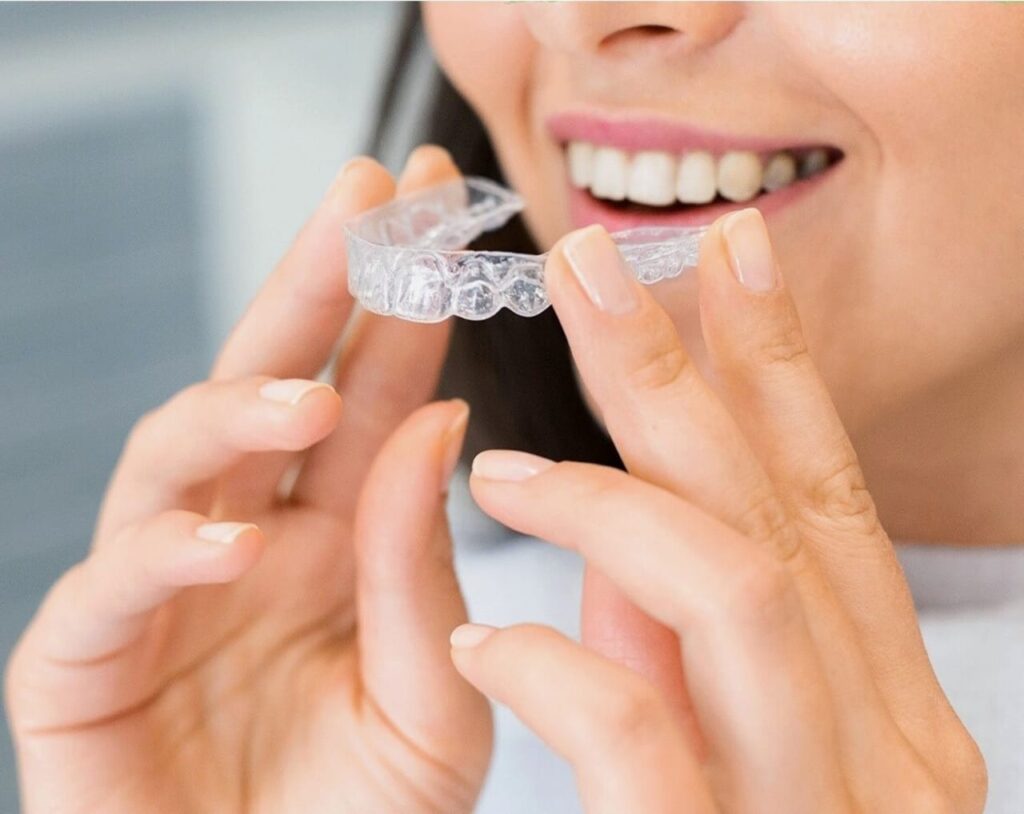
When it comes to orthodontic treatment for children, parents have more options than ever before. Invisalign is a relatively new and popular method of straightening teeth. It has gained significant attention. However, like any medical or dental procedure, it has its own advantages and disadvantages. It is essential to explore the pros and cons of Invisalign for your child to help you make an informed decision about orthodontic care.
Pros of Invisalign
One of the standout benefits of Invisalign is its virtually invisible nature, offering a boost in self-esteem for wearers. Its design, clear and unnoticeable, allows children to maintain their regular activities without feeling self-conscious. Moreover, crafted from smooth, comfortable plastic, the aligners reduce potential irritation, a discomfort sometimes seen with traditional braces. The aligners are removable, promoting better oral hygiene by allowing for proper brushing and flossing. In the realm of dietary freedom, Invisalign stands out, as there are no constraints on sticky or hard foods, thanks to the removable nature of the aligners.
Furthermore, Invisalign offers a level of predictability that stands out in orthodontic treatments. Using advanced computer technology, each stage of the treatment is carefully mapped out. Parents can see a digital representation of their child’s dental progression, offering peace of mind and a clear expectation of results. This meticulous planning also means fewer unexpected visits to the orthodontist, allowing for more convenience in scheduling. As the aligners are custom-made for each patient, they fit snugly, minimizing disruptions during sports or other activities. Lastly, with no metal parts involved, there’s a reduced risk of emergency orthodontist visits due to broken wires or brackets, ensuring continuous and smooth treatment progression.
Cons of Invisalign
Despite its advantages, Invisalign demands a high level of discipline and responsibility from its wearers. Children must commit to wearing the aligners for 20-22 hours daily, and any deviation could prolong the treatment. Initial use might also cause minor speech issues, such as lisping. Furthermore, Invisalign isn’t universally suitable; some intricate cases might necessitate the traditional braces route. Parents must also be prepared for potentially higher costs when choosing Invisalign, especially when compared to traditional braces.
Additionally, the removable nature of the aligners, while advantageous in some respects, introduces the risk of misplacing or losing them, leading to potential delays in treatment. Regular removal for meals can also result in the neglect of immediate re-insertion post-eating, diminishing the required daily wear time. Colored foods and drinks can stain the clear aligners, requiring meticulous cleaning habits. In some cases, Invisalign might not be covered or only partially covered by dental insurance, necessitating out-of-pocket expenses. It’s also worth noting that frequent removal and insertion can pose a challenge for younger children, making it vital for parents to supervise and remind them. Lastly, regular appointments are needed to get new sets of aligners, which can be time-consuming.
Things to Consider When Opting for Invisalign
Before diving into the Invisalign journey, it’s essential to engage with an experienced orthodontist. This ensures a comprehensive understanding of the treatment process. For example, when considering Invisalign in Chicago or elsewhere, select providers who can showcase the digital progression of treatment stages, offering clarity on expected outcomes. Open communication with your chosen provider will also be crucial, ensuring any concerns or questions during the treatment are promptly addressed. The provider can discuss the pros and cons with you and help you make the best choice for your child. It’s also prudent to discuss age suitability, as Invisalign often caters more to older children with fully grown adult teeth. Ultimately, factor in long-term commitments, both in terms of time and finances, to ensure the choice aligns with the family’s needs and capabilities.
Conclusion
Invisalign can be an excellent option for many children requiring orthodontic treatment. However, it’s not without its drawbacks. Ultimately, the decision between Invisalign and traditional braces should be based on your child’s specific orthodontic needs, lifestyle, and budget. Before making a choice, consult an experienced orthodontist who can evaluate your child’s dental condition. They can help you weigh the pros and cons and decide whether Invisalign is the right choice to give your child a confident smile and optimal oral health.